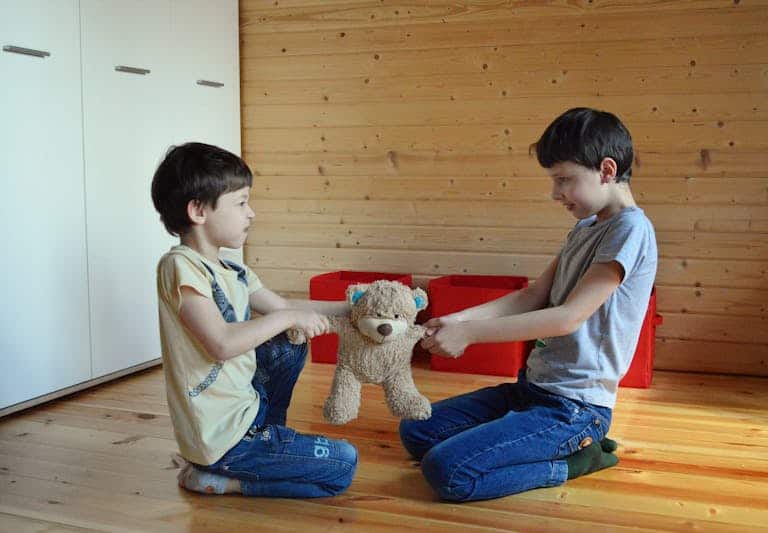10 Phrases Parents May Say That Impact a Child’s Self-Worth
Parenting doesn’t come with a manual. We’re all just winging it, fueled by caffeine and an endless supply of love. Most of us are doing our best, hoping we don’t totally mess up our kids.
But did you know that what you say in the heat of the moment can actually affect your child’s self-worth for years? The University of Washington states that, by the age of 5, children have developed a sense of self-esteem comparable in strength to that of adults.
Children and teens with low self-esteem are at increased risk for anxiety, depression, and self-harming behavior; globally, 15% of 10-19-year-olds experience a mental disorder, according to the World Health Organization.
Ever replayed a conversation with your child in your head at 2 a.m., wondering if you said the right thing? We’ve all had those moments, like after a paint explosion in the living room or a tough homework session, when something slips out and you instantly wish you could take it back.
The truth is, nobody expects you to be a flawless parent. In fact, perfect parents simply don’t exist. Still, being mindful of our words can make a significant difference in helping our kids grow into secure and confident individuals.
Here are 10 common phrases that can do more harm than we realize, along with what you can say instead to boost your child’s self-worth.
Why can’t you be more like your sibling?

This phrase is a significant confidence crusher. Making comparisons doesn’t help. It’s a common habit, but it almost always backfires.
It doesn’t encourage a child to improve. Instead, it sends the message that who they are right now isn’t good enough, as Integrative Psych notes. It can create resentment and rivalry, turning siblings into competitors instead of friends.
For instance, if your boss said, “Why can’t you be more like Susan from accounting?” you probably wouldn’t start loving spreadsheets; you’d feel frustrated with Susan.
A better approach: Celebrate their unique sparkle. Instead of comparing, try saying, “I love how you always think of such creative ways to build with your Legos.” Focus on their individual strengths and progress, rather than comparing them to others.
You’re too sensitive

Telling a sensitive child to “toughen up” ignores who they are and teaches them that their feelings are a weakness. This can lead them to hide their emotions, which may cause anxiety and make it harder to connect with others later.
Sensitive kids often grow up to be incredibly empathetic, creative, and intuitive adults. Our job is to help them understand and manage it, not to shame them for it.
A better approach: Validate and empower. Try, “I can see this situation is really affecting you. Your feelings make sense. Let’s figure out what would help you feel better.“
You never do anything right

We all have those days when the milk spills, homework is forgotten, and the dog gets loose. In a moment of frustration, it’s easy to say something like this. But words like “never” and “always” can be harmful because they sound so final.
When a child hears “you never do anything right,” they don’t just hear that they made a mistake. They hear that they are a mistake. They internalize this message and start to believe they are fundamentally incapable.
A better approach: Get specific and curious. Instead of a sweeping condemnation, try, “We agreed you’d put your toys away, and I see they’re still out. What happened?” This opens a conversation instead of shutting them down.
You’re making me so angry!

This one is tricky because your child’s actions can make you feel angry. But saying it this way gives them responsibility for your emotions. It can make them feel like they have to manage a parent’s big feelings, which is a lot for a child to handle.
Children may start to feel like they are the reason for their parents’ unhappiness. This can lead them to become people-pleasers who are afraid of upsetting others, or it can cause them to feel ashamed. As parents, it’s important for us to manage our own feelings.
A better approach: Own your emotions without placing blame. You could say, “I’m feeling really frustrated right now because I’m worried we’re going to be late.” This separates your feelings from their identity and models healthy emotional ownership.
Stop crying, it’s not a big deal

To a kid, a broken toy or a scraped knee is a big deal. When we dismiss their feelings, we’re telling them that their emotions are invalid or wrong. We teach them to bottle things up, which is a recipe for disaster later in life.
I remember my nephew crying hard when his ice cream fell on the ground. My first instinct was to say, “It’s just ice cream!” But to a three-year-old, that felt like a huge loss. Ignoring his sadness wouldn’t have helped him learn to cope.
A better approach: Validate the feeling, even if you don’t get the reason. Try, “I can see you’re really sad about your ice cream. It’s okay to feel disappointed.” This shows them that their feelings are safe with you.
You’re so lazy/stupid/selfish

Labels belong to brands, not to children. When we use words like “lazy,” “stupid,” or “selfish,” we aren’t just talking about a behavior. We’re telling kids something about who they are, and they often believe it.
If a child is often called lazy for not cleaning their room, they may start to see themselves that way. It can become an integral part of how they perceive themselves. The next time they face a task, they might hear that inner voice saying, “You’re lazy, you can’t do this.”
A better approach: Focus on the action, not the person. Instead of “You’re so lazy,” try “I noticed your homework isn’t done yet. What’s getting in the way?” This separates their actions from their identity.
You’re just like your father/mother (When it’s negative)

First, you’re unfairly labeling your child with a negative trait you see in your partner or ex-partner. Second, you’re damaging their relationship with that other parent.
Additionally, planting a seed of doubt about their own character can lead to a decrease in self-esteem, according to Frontiers. Kids see themselves as a mix of both parents.
When you weaponize that connection, it forces them into a loyalty bind and makes them feel like they have a “bad” part inside them that they can’t control. It’s simply not fair to put that on them.
A better approach: Stick to the behavior at hand. Say, “When you slam the door, it makes a loud noise and feels disrespectful. Let’s talk about better ways to show you’re upset.” This addresses the action without bringing anyone else into it.
You’ll never amount to anything

This is one of the most damaging things a parent can say. Negative predictions like this can become self-fulfilling. Words matter, and telling a child they will fail can plant seeds of doubt that grow over time.
Even if said in a moment of anger, these words can echo in a child’s head for years. They’ll hear that voice during a challenging exam or a job interview.
A better approach: Encourage growth and effort. Instead of predicting failure, say, “This is challenging, but I know you can figure it out. Let’s think of a new strategy.” This instills resilience and a belief in their own ability to improve.
I sacrificed so much for you!

Parenting means giving up a lot, sleep, money, free time, and even the last piece of pizza. But holding those sacrifices over a child’s head is a powerful form of guilt-tripping. It makes them feel like a burden.
It can create a deep sense of guilt and obligation in a child, making them feel responsible for their parents’ happiness. Unconditional love means not keeping a running tab of what you’ve given up.
A better approach: Express your needs without the guilt. If you’re feeling unappreciated, you could say, “I’m feeling worn out today and could really use your help with this.” This is to inform you directly of your needs.
Why can’t you ever listen?

Here we go again with those tricky absolutes: “ever,” “never,” “always.” Using these words makes a child feel hopeless. If they “never” listen, why should they even try to start now? It frames their behavior as a fixed personality trait rather than a temporary issue.
It’s an accusation, not a question. It doesn’t invite the child to explain what’s going on or what might be distracting them.
A better approach: Remind them of their strengths. You could say, “You’re usually such a good listener. What’s making it hard to hear me right now?” This acknowledges their positive qualities while still addressing the problem.
Why Supersonic Flights Vanished From Our Skies

Why Supersonic Flights Vanished From Our Skies
Every year on August 19th, National Aviation Day celebrates the marvels of flight and the pioneers who made it possible. But as we look to the skies, one question lingers. If we could fly from New York to London in under three and a half hours back in the 1970s, why are we still taking nearly seven today? Supersonic travel was once a thrilling reality. So, what grounded it?
Science Tells Us What To Expect As We Age: Strategies for Thriving in Later Life

Science Tells Us What To Expect As We Age: Strategies for Thriving in Later Life
How does aging affect our bodies and minds, and how can we adapt to those differences? These are questions that pertain to us all. Aging gradually alters people over decades, a long period shaped by individuals’ economic and social circumstances, their behaviors, their neighborhoods, and other factors. Also, while people experience common physiological issues in later life, they don’t follow a well-charted, developmentally predetermined path. Let’s take a look at what science has told us to expect.







